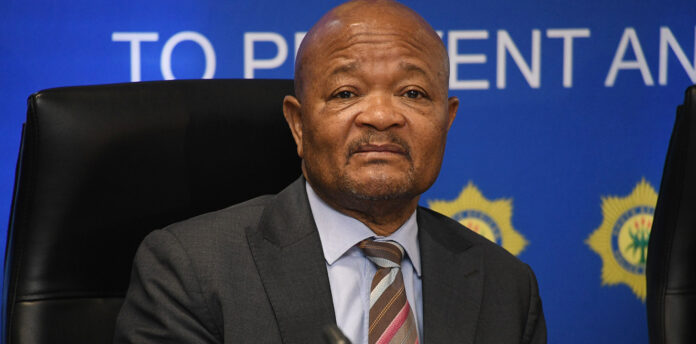Police Minister Senzo Mchunu has mounted a fierce legal defence in a scathing affidavit to the Constitutional Court, asserting that President Cyril Ramaphosa was fully entitled to place him on special leave following unproven allegations made against him in a press conference.
The apex court will on Wednesday hear an urgent application brought by former president Jacob Zuma and his 19-month-old Umkhonto Wesizwe Party (MKP), challenging both Mchunu’s leave of absence and the lawfulness of the judicial commission of inquiry that was subsequently announced.
The applicants claim Ramaphosa acted irrationally and unconstitutionally, but Mchunu, in his 25-page answering affidavit, paints their case as legally incoherent and politically mischievous.
Heart of the matter
At the centre of the case is Ramaphosa’s July 13 decision to place Mchunu on leave pending an investigation into serious allegations made by KwaZulu-Natal police commissioner, Lieutenant General Nhlanhla Mkhwanazi.
The senior officer claimed that Mchunu interfered in high-profile investigations and played a role in the disbandment of the Political Killings Task Team.
Dismissing the allegations as “extravagant and misinformed allegations,” Mchunu accuses Mkhwanazi of launching a sensational media ambush without affording him a right to respond—an act that, in Mchunu’s view, “undermines the administration of justice.”
“There is no dispute that I am at the very least currently unable to perform my ordinary function as Minister of Police because the President has placed me on a leave of absence,” he stated, explaining the legal foundation behind Ramaphosa’s action.
Mchunu argues that the president’s constitutional right to appoint Cabinet members inherently includes the power to suspend them when necessary.
“It ignores the established rules of interpretation, which include the fact that the power to appoint necessarily includes the power to dismiss. The same reasoning applies with equal force in relation to the power to place one on precautionary suspension or leave of absence.
“It would be absurd to suggest that the wide powers of the President to appoint Cabinet Ministers and to dismiss them at any time—and indeed to alter their terms of appointment, their functions…—suddenly excludes the power to do something less drastic, which is to place a Minister on precautionary suspension or special leave.”
To reinforce his argument, Mchunu invoked section 98 of the Constitution, which allows the President to reassign a Minister’s duties when they are “absent from office or… unable to exercise that power or perform that function.”
The veteran ANC politician then turned to address what he described as spurious allegations that his suspension was tainted by bias or political protection.
“I have not been indicted or formally charged in a criminal court based on the allegations made by Lt General Mkhwanazi. There is no charge sheet or indictment against me. It follows that there is nothing ‘strange’ about the alleged failure of the ANC to apply the step-aside rule against me. The rule simply does not apply.”
Chalk and cheese
He also challenged the comparison made between his case and that of former Deputy Minister Andrew Whitfield, who was dismissed for travelling abroad without the President’s permission.
“In respect of me, I have denied the allegations made by General Mkhwanazi during his sensational press conference. I have not admitted any wrongdoing and have not been given a fair opportunity to have Mr Mkhwanazi’s allegations tested.
“In these circumstances, to try and compare the present case to that of Mr Whitfield amounts to clutching at straws… The only question is whether his [the President’s] decision has a rational basis. It does. That is the end of the matter.”
Mchunu accused MKP and Zuma of “a desperate attempt to back up their unsubstantiated claims of bias” by introducing matters unrelated to the allegations made by Mkhwanazi. “The Applicants seek to introduce the issues unrelated to their complaint in this application in their desperate attempt to back up their unsubstantiated claims of bias on the part of the President in relation to me.”
Mchunu reminded the court of his inviolable right to a fair process.
“Like any other citizen of this country, I am entitled to the protection of the Constitution and more specifically, the right to be presumed innocent until proven otherwise.”




